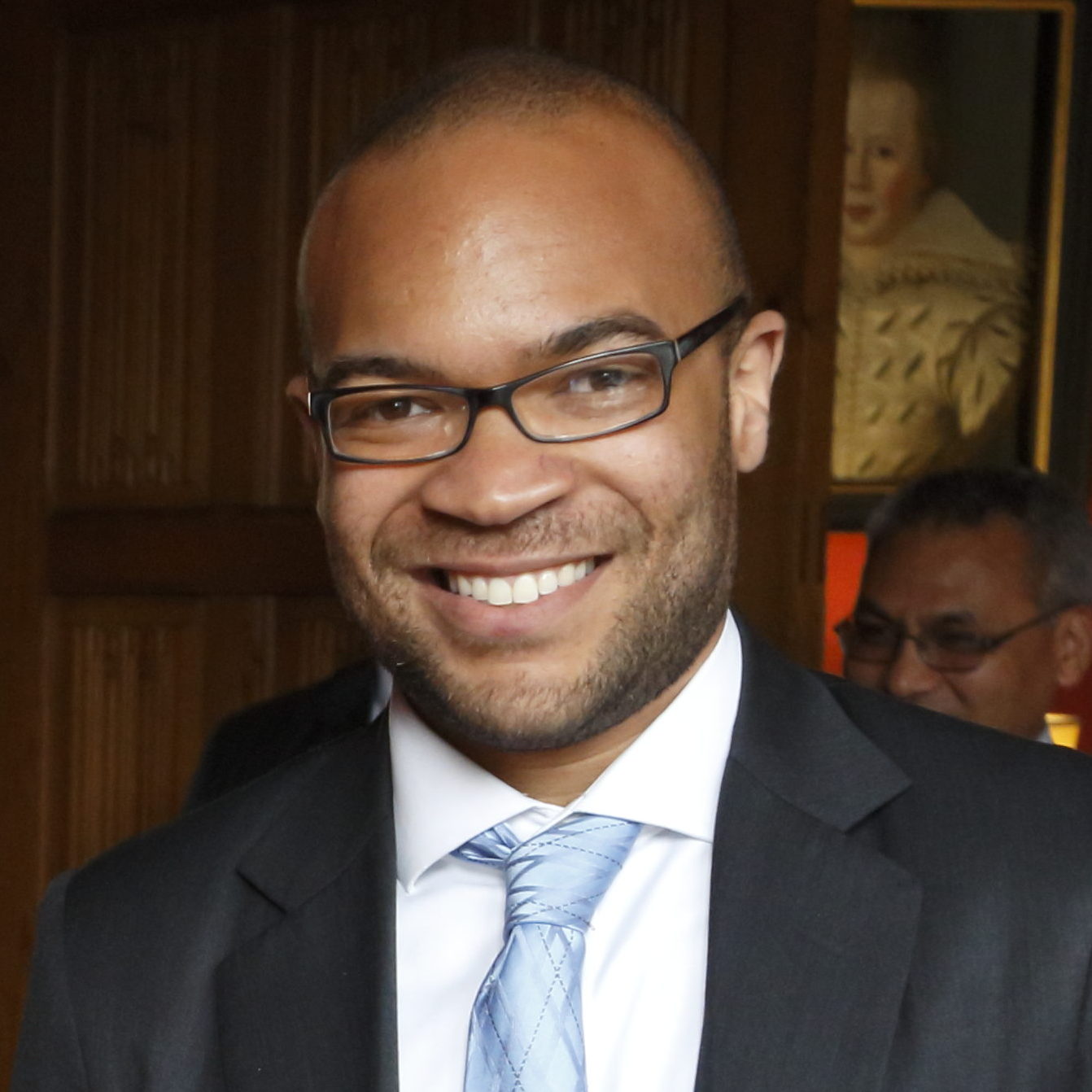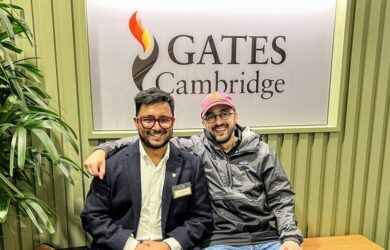
Cameron Taylor's time at Cambridge doing a PhD in Linguistics has taken him into organising intercultural dialogues and to a new role in robot communication.
The evolutionary introduction of language in the human species has given us a unique ability to cooperate in large and highly adaptable social groups. By observing and understanding language structure, we learn more about ourselves and the world which we create.
Cameron Taylor
Cameron Taylor has had a varied career since finishing his PhD. Not only has he worked with the former Archbishop of Canterbury on a foundation which organises dialogues between leaders and influential thinkers, but he has just taken up a job as an artificial intelligence interactions architect.
The new job, which is based in Norway, means Cameron, who did a PhD in Linguistics, will use his language skills to improve the way robots communicate with people. He believes the presence of robots in the workplace could serve to underline the qualities that make us human. “Artificial intelligence will augment us,” he says.
Cameron's interest in language, and linguistics in particular, has always been fundamentally about what links people together and the mechanisms we use to share what we experience as humans. He says: "The evolutionary introduction of language in the human species has given us a unique ability to cooperate in large and highly adaptable social groups. By observing and understanding language structure, we learn more about ourselves and the world which we create. We also learn about the mechanisms which will be required to create the kind of world we would like to live in."
Cameron [2010] did a double degree in Linguistics and Italian Studies at the University of California, Santa Cruz. He spent a year in Bologna, taking classes in literature and learning about Italian culture. Cameron wrote two undergraduate theses – the first in linguistics, on the mechanics of pronominal reference; the second in medieval literature, exploring the use of language in Dante's Divine Comedy drawing on Dante's ideas in his work 'De Vulgari Eloquentia'. He says Dante got him interested in early linguistics and in Italy’s different dialects.
Cameron was awarded a Gates Cambridge Scholarship in 2009 for his MPhil and then in 2010 for his PhD. He studied one of the Southern Calabrian dialects, Nicoterese. It is spoken in Nicotera, Nicotera Marina, Comerconi, Badia di Nicotera and Preitoni. Cameron had originally been planning to study a different dialect. However, his supervisor, Professor Adam Ledgeway, an expert in the Romance languages, had written a grammar of the dialect of Naples in the south and Cameron has also met a person who spoke Nicoterese, which is in the same family sub-group but has similar grammatical structures to Greek, and had become fascinated.
From the Global Scholars Symposium to intercultural dialogues
In 2012, Cameron was working his way through a mound of data and decided to go for a walk to clear his head. He went to a talk in a unitarian church in Cambridge where Mahatma Gandhi had spoken in the past. There he met a Buddhist monk who invited him to tea. The monk turned out to be the Dalai Lama’s translator. He suggested Cameron should invite the Dalai Lama to speak in Cambridge. By coincidence Cameron’s housemate, Brianne Kent, was involved in organising the Global Scholars Symposium, an annual event which was founded by Gates Cambridge Scholars and brings together international scholars in the UK. She needed a speaker for the event so the two scholars sent an invitation to the Dalai Lama. His acceptance email arrived on Christmas Day.
He addressed the 2013 symposium, with Cameron and Brianne organising every detail of his weekend in Cambridge, including accommodation, meals, security, transportation, guest lists and media coverage. During that time the Dalai Lama spoke to more than 1,600 students, national, local, and student press organisations and had two talks streamed live on the internet. By the end of the visit Cameron and Brianne had dealt with everything from undercover police officers to people fraudulently posing as press.
The Dalai Lama wanted to return to Cambridge for a dialogue with academics and thinkers. Rowan Williams, the former Archbishop of Canterbury and master of Magdalene College, agreed to host the dialogue in 2015 which focused on universal responsibility. Rather than just being an interfaith dialogue, the aim was to broaden it to include influential leaders and thinkers in government, business, religion and academia, including Patricia Scotland, the Commonwealth Secretary General, producer and comedian John Lloyd and Jude Kelly who was then the artistic director of the Southbank Centre in London. Cameron also organised a youth festival with the Dalai Lama, involving around 600 children from youth charities and addressing their hopes and fears for the future.
The dialogue was hosted by the Inspire Dialogue Foundation which Cameron, its executive director, helped to set up as a creative forum to help shift perceptions of ourselves as a human community. Since then it has held several annual dialogue events, bringing people together to debate issues such as climate change and understanding strangers. The events are held in intimate environments to enable conversations. Future plans include a summer school and an education project.
What unites both the Dialogue Foundation and Cameron’s new job in Norway is an interest in what makes us human. He says: “Robots cannot replicate human consciousness because we do not yet know what that is. Technology will enable human creativity, leaving machines to do the rest. That is why the arts are the most important subjects in school.”
Cameron Taylor
- Alumni
- United States
- 2009 MPhil Linguistics
2010 PhD Italian - St John's College
The evolutionary introduction of language in the human species has given us a unique ability to cooperate in large and highly adaptable social groups. Our capacity for language allows us to live according to imagined cultural orders, such as the legal and economic frameworks that govern civic life. These frameworks exist in our shared imagination and are sustained through communication networks, linking the subjective consciousness of many individuals. These shared beliefs shape our societies and our world, and form the basis of study of most of the humanities. History has shown us the great consequences and opportunities of our shared beliefs, which determine our cultural values and prejudices. By observing and understanding language structure, we learn more about ourselves and the world which we create. We also learn about the mechanisms which will be required to create the kind of world we would like to live in.












